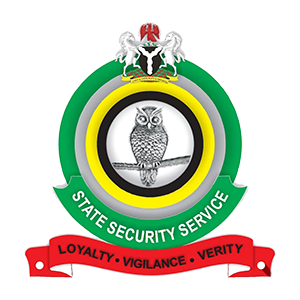


The Department of State Security Service (DSS) has urged its officers to inculcate public relations principles towards enhancing the image of the organization.
The Director General of DSS, Yusuf Magaji Bichi made the call at a PR seminar for its officers and said public relations is a strategic communication process that fosters mutually beneficial relationships between the service, stakeholders as well as the general public.
The DSS boss who was represented by Tony Adinweruka, Director of Economic Intelligence at the Service, said PR includes the way in which personnel act and interact within the service and extends to the amount of cooperation given and received while carrying out responsibilities and operations.
“While interacting with stakeholders and members of the public, information and image management becomes an integral aspect of PR. Personnel of the service must understand what information is shareable or not.
“That is why we are calling on the participants of this training, and the entire staff of the DSS to avoid engaging in acts that will tarnish the Service’s reputation. Their actions should not contravene our rules of engagement,” said Bichi.
Earlier in his remark the spokesperson of DSS, Dr Peter Afunanya said that the seminar was essentially organised to educate middle cadre officers in the service on public relations for reputation management
He emphasized that officers who work in critical institutions must maintain a positive attitude and appearance to safeguard the image of the organisations.
He added that beyond writing and public speaking, officers should strive to maintain decency in their interactions and actions within and outside the organization.
“PR is not just about good writing and speaking but also about the ability and capability to establish honest and trust-based relationships within and outside our organization,” Afunanya said.
Speaking on “Contemporary Issues in Public Relations,” the publisher of PRNigeria, Mallam Yushau Shuaib stressed the need for officers and personnel of the Department of State Services, DSS, to have a deep grasp of best global practices on public relations, with a view to remodel the Service’s public image.
This, he said, will prepare them to confront and tackle various kinds of organizational and management crises in the Service.
Shuaib, who argued that many global organizations are deploying requisite PR tools to sustain their corporate reputation, said the DSS, as an intelligence agency, must evolve a clear-cut PR strategy that will correct some ‘negative’ perceptions about the Service.
“The power of PR is enormous. It can help your Service to tackle some teething management and organisational crises, that have damaged its image in the public eyes.
“This is pertinent now, looking at the fact that your Service has done a lot in gathering intelligence about potential attacks by subversive groups and elements, threatening the national security,” he said.
Professor Okey Ikechukwu, a media scholar who spoke on “Strategic Communication for National Security Management” pointed out that in the modern age of technology activities of various organizations are subjected to instant, vivid, unfiltered, and global scrutiny and occasional attacks which require effective communication strategies.
The media scholar and journalist said that information and intelligence gathering could be obtained through the rudiments of PR which entails establishing a mutual relationship for the purpose of obtaining a stream of reliable, knowledgeable, and interesting sources of information.
Other papers presented at the occasion included: Effective Writing Skills, Preventing and Countering Violent Extremism; Stakeholders Management for Effective Security Operation, Crisis Communication Management, and Relevant of Open Source as a Counter Threat Tools
The structure of the course reflected the crisis management process: prevention, preparation, response, and long-term. Emphasis was also placed on the practical application of crisis communications theory, with copious use of real-life case studies.
PRNigeria